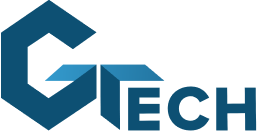In the fast-evolving world of recruitment, the use of predictive analytics has become a game-changer. GTECH, a leader in innovative talent solutions, harnesses this powerful tool to stay ahead of the curve in the competitive job market. This blog explores the importance of predictive analytics in recruitment and how GTECH utilizes it to build a talent pool designed for the needs of tomorrow.
The Strategic Edge of Predictive Analytics
Predictive analytics is the crystal ball of HR professionals, enabling them to forecast hiring trends, anticipate skill requirements, and predict candidate success. It turns historical data into future insights, helping firms like GTECH not only react to current demands but also proactively prepare for what’s next.
In recruitment, this can mean analyzing employment trends, skill gaps, and even economic shifts to identify what competencies will be in demand. For instance, as industries grow increasingly digital, predictive analytics might highlight a future need for cybersecurity experts or data scientists.
GTECH’s Proactive Approach
At GTECH, predictive analytics is not just a buzzword; it’s a strategic pillar in building their talent acquisition process. They analyze patterns from past hires and market trends to anticipate the competencies their clients will need. This foresight enables GTECH to engage with potential candidates early, creating a robust talent pool that is both skilled and adaptable.
By evaluating past recruitment cycles, employee performance, and tenure, GTECH identifies the traits of their most successful placements. This information informs their search for new candidates, ensuring a higher success rate for future hires.
Building Tomorrow’s Talent Pool Today
GTECH’s talent pool is a living, breathing ecosystem that evolves based on predictive insights. They nurture relationships with candidates who have the skills that will be needed for future roles, even before those roles become available. This means that when the market demands it, GTECH already has a pre-vetted selection of candidates ready to go.
Their approach is two-fold: not only do they focus on hard skills, but they also give weight to adaptability, learning potential, and cultural fit. Predictive analytics allows them to understand which candidate attributes have historically led to long-term success within their clients’ organizations.
Ethics and Adaptability in Analytics
GTECH commits to using predictive analytics ethically, ensuring that the data-driven approach is free from bias and respects candidate confidentiality. They regularly update their algorithms and practices to align with the latest ethical standards and legal requirements.
Moreover, they recognize that the future is inherently unpredictable. Hence, they maintain flexibility in their models, ready to adjust their strategies in response to unforeseen market changes or technological advances.
Conclusion
The power of predictive analytics lies in its ability to transform recruitment from a traditionally reactive business function to a strategic, forward-looking one. GTECH’s use of predictive analytics exemplifies how recruitment firms can gain a competitive advantage by preparing for the future today.
By strategically utilizing data, GTECH not only meets the needs of the present but also shapes their talent pool to meet the demands of tomorrow, ensuring they remain at the forefront of the talent solutions industry.
In conclusion, the key takeaway for any recruitment firm is clear: embrace predictive analytics to not just survive, but thrive in the future job market. It’s about being one step ahead – always.


